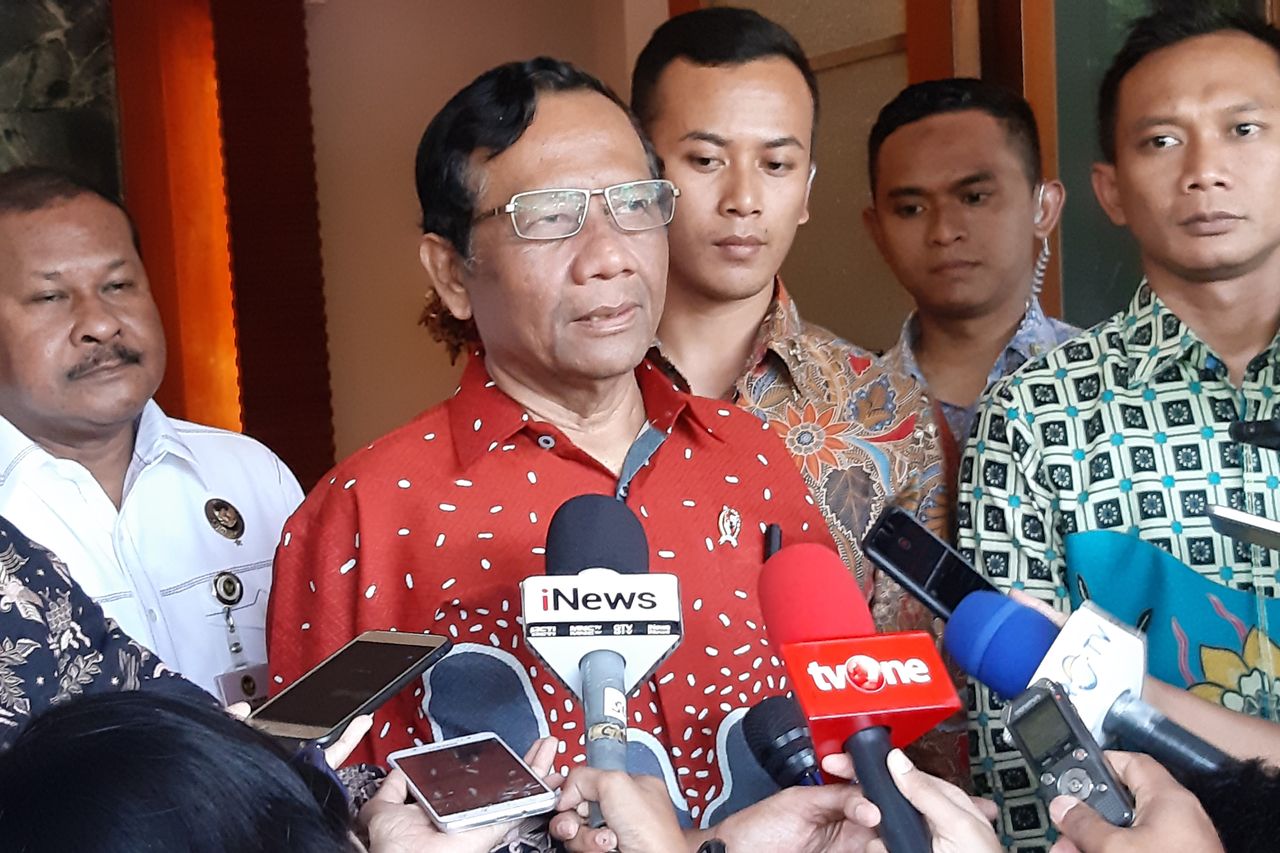Mahfud MD Who Agreed To The Death Penalty For Corruptors

JAKARTA - The Coordinating Minister for Political, Legal and Security Affairs (Menkopolhukam) Mahfud MD agreed with the death penalty for corruptors. According to him, it is possible to do so without having to change the law.
However, Mahfud said that the decision to issue a death sentence would always end in court. Although sometimes it may not be in line with the wishes of the community.
"It depends on the judges and prosecutors. I have always agreed to the death penalty for corruptors," Mahfud said at the Kemenkopolhukam Office, Jalan Medan Merdeka Barat, Central Jakarta, Tuesday, December 10.
The reason why the former Chief Justice of the Constitutional Court (MK) agreed with the sentence of death was because corruptors had damaged the nation due to their greed. "So if the corruptors are serious in large numbers, because they are greedy, yes, I agree," he said.
Mahfud assessed that the threat of the death penalty has actually been regulated in Law Number 20 of 2001 concerning amendments to Law Number 30 of 1999 concerning Eradication of Corruption Crimes.
In the law, it is stated that corruptors can be punished by death if they commit repetition or corrupt disaster relief funds.
So, if later the death penalty will be implemented for corruptors, there is no need for a new law. However, Mahfud said, the criteria for disaster in the regulation were not yet clear. "If you want it to be implemented, there is no need for a new law, because the available legal instruments already exist," he explained.
He also said that even though there was a law regarding the death penalty and government support, in the end the decision was still on the judge's hammer. Moreover, there are still many judges who often decide corruption cases with light sentences.
"Sometimes the judges are even acquitted, sometimes the sentences are very light. Sometimes they are lightly cut again. Yes, that's about it, court matters. Outside of government affairs," said Mahfud.
Previously, a student of SMKN 57 Jakarta asked President Joko Widodo about the possibility of a death penalty for corruptors. The student asked Jokowi who came to his school after watching the drama Performance Without Corruption at SMKN 57, Jakarta, Monday, December 9.
Jokowi answered that the death penalty for corruptors has been regulated in Law Number 31 of 1999 as amended in Law Number 20 of 2001 concerning Corruption Eradication, but its application is not arbitrary.
"If corruption is a natural disaster, it is possible. If not, no. For example there is an earthquake, tsunami, in Aceh, or in NTB we have a budget for disaster management, the money is corrupted, it can be (sentenced to death)," said Jokowi in response to the death penalty for corruptors, adding that no corruptors have been sentenced to death.
After this event, Jokowi was asked by journalists about the possibility of the death penalty being applied to all corruptors. Jokowi said that this could have been done as long as there was encouragement from the community to change the law.
"If the public wishes like that in the draft of the Corruption Crime Law (death penalty) it is included. But once again it is also included in the (will) in the legislature (DPR)," he added.
